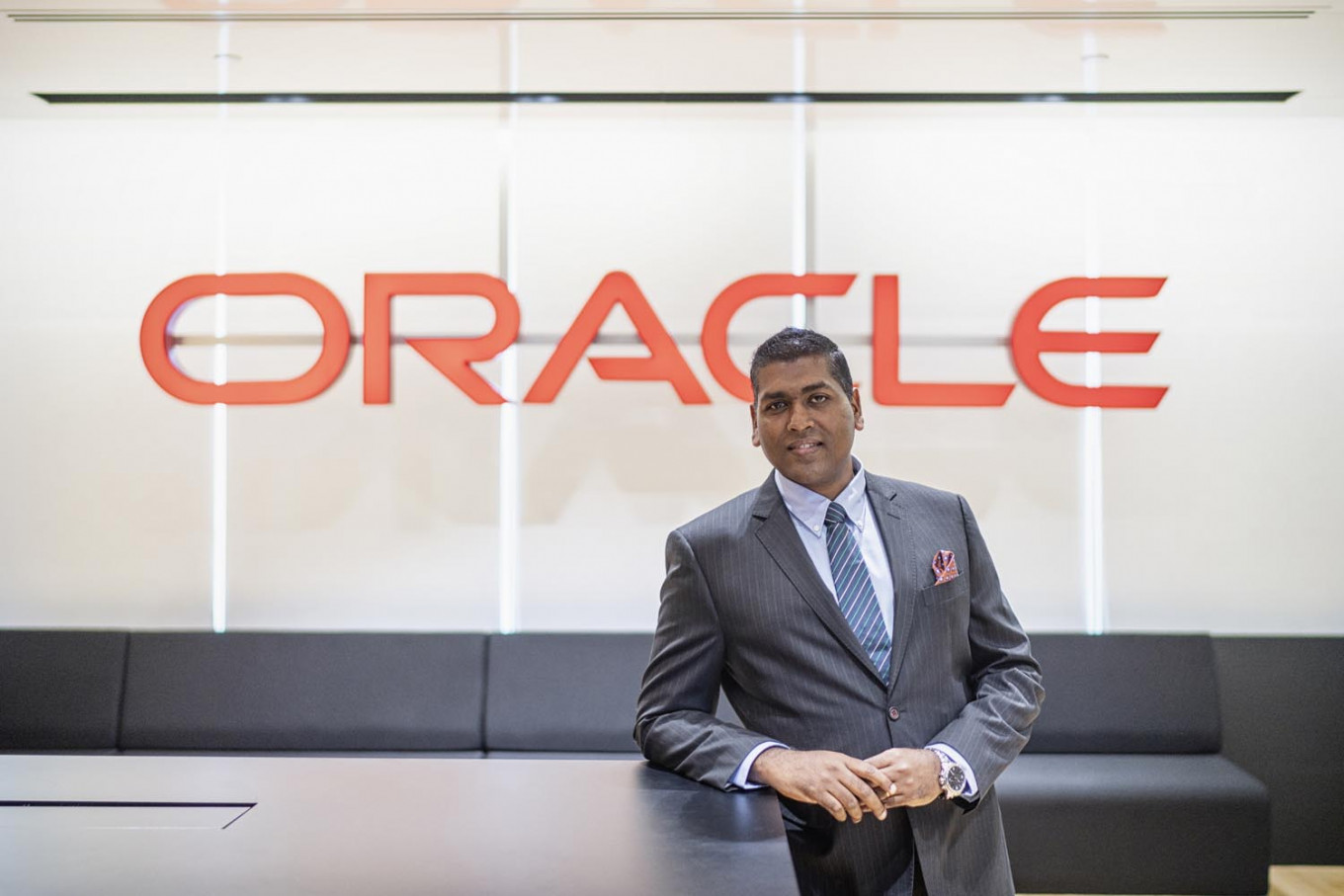Popular Reads
Top Results
Can't find what you're looking for?
View all search resultsPopular Reads
Top Results
Can't find what you're looking for?
View all search resultsCloud service boom will continue: Oracle
The Jakarta Post’s Eisya A. Eloksari interviewed Oracle ASEAN regional managing director Cherian Varghese on July 9 to learn more about the company’s latest developments and the trajectory of cloud adaptation in the region.
Change text size
Gift Premium Articles
to Anyone
T
he government’s enforcement of large-scale social restrictions (PSBB) to contain COVID-19 transmission has led to a surge in demand for digital services among Indonesians, including in e-commerce, education and cloud services.
Indonesia’s digital economy is also on track to dominate Southeast Asia as its market value is projected to triple to US$130 billion by 2025 from $40 billion in 2019, according to the latest e-Conomy Southeast Asia study.
Meanwhile, American technology company Oracle recently announced the launch of its newest cloud service product, Dedicated Region Cloud@Customer. The product allows users to bring the company’s public cloud services into the customer’s on-premises data center, which reduces latency and keeps data intact.
The Jakarta Post’s Eisya A. Eloksari interviewed Oracle ASEAN regional managing director Cherian Varghese on July 9 to learn more about the company’s latest developments and the trajectory of cloud adaptation in the region.
Question: What is Oracle’s view on the cloud market in Southeast Asia and Indonesia in particular?
Answer: It is bullish with a quarter-to-quarter growth across the industry as customers are moving extremely fast on cloud adoption.
Now people are also tapping into cloud technology because the pandemic has prevented us from engaging with customers directly and this prompted an era in which people can accentuate their businesses digitalization.
In general, I think the cloud boom will continue. Customers will be on all different formats of the cloud, such as a public cloud, a dedicated region or a hybrid.
One prediction is that by 2022, about 80 percent of businesses will be on the cloud in some form or another, including businesses in the Asia-Pacific and Indonesia. Whether their digitalization journey is with Oracle or not, I believe they will benefit from the disruption of digitalization.
What industries have yet to adopt to cloud and what do you think is the challenge?
There will be people in the economic strata who might not be able to reap the benefits of cloud technology. Small and medium enterprises (SMEs) would love to have their own retail platform or put their supply chain information to the cloud. This means they have to digitalize but it invokes a cost.
However, if SMEs do want to modernize, the cloud is still a better medium today compared to 10 years back when the digitalizing process was slower and more difficult.
Today, the cost of digitalization has been reduced by one-fourth of what people would have to spend back then. But most importantly, the implementation time is faster.
How does Oracle plan to compete with other cloud service providers in Indonesia?
We have been in the business for the last 40 years, so we understand the enterprise better than our competitors.
Indonesia is a big market and it is one of the heavily invested markets for Oracle. Our footprint is also big here and right now our strategy is to introduce the Dedicated Region Cloud@Customer.
It allows customers to bring cloud into their own infrastructure, expanding cloud adaptation opportunities for industries whose data is critical and highly regulated, such as banking, financial services, health care and the government.
This is where Oracle finds a sweet spot because sometimes it is just the fundamentals of economics to not put some of that data outside of the customers’ premises or to the public cloud.
It is also developed with second-generation cloud services, ensuring a high level of data security.
Most importantly our entire architecture uses second-generation cloud services and is powered entirely by artificial intelligence, ensuring a high level of data security.
What is Oracle’s plan on market expansion in Asia and how much investment are you going to commit in the region?
Last year, we planned to add 20 new data centers, which means we would have 36 data centers available by the end of this year. The data centers will be available in new countries and dual regions in India, Japan and South Korea, among other places. With this expansion, we will be one of the largest public cloud providers globally, setting us apart from our competitors.
We recently opened our second data center in India, and we expect to launch a new data center in Singapore. However, if our dedicated cloud region clients go up, then the number of public data centers is irrelevant because customers can just start to put their data in their own data center.
As for investments, we have a solid business model and our investments have remained the same even in these trying times. We will continue our trajectory to invest in our people and continue building our business.










